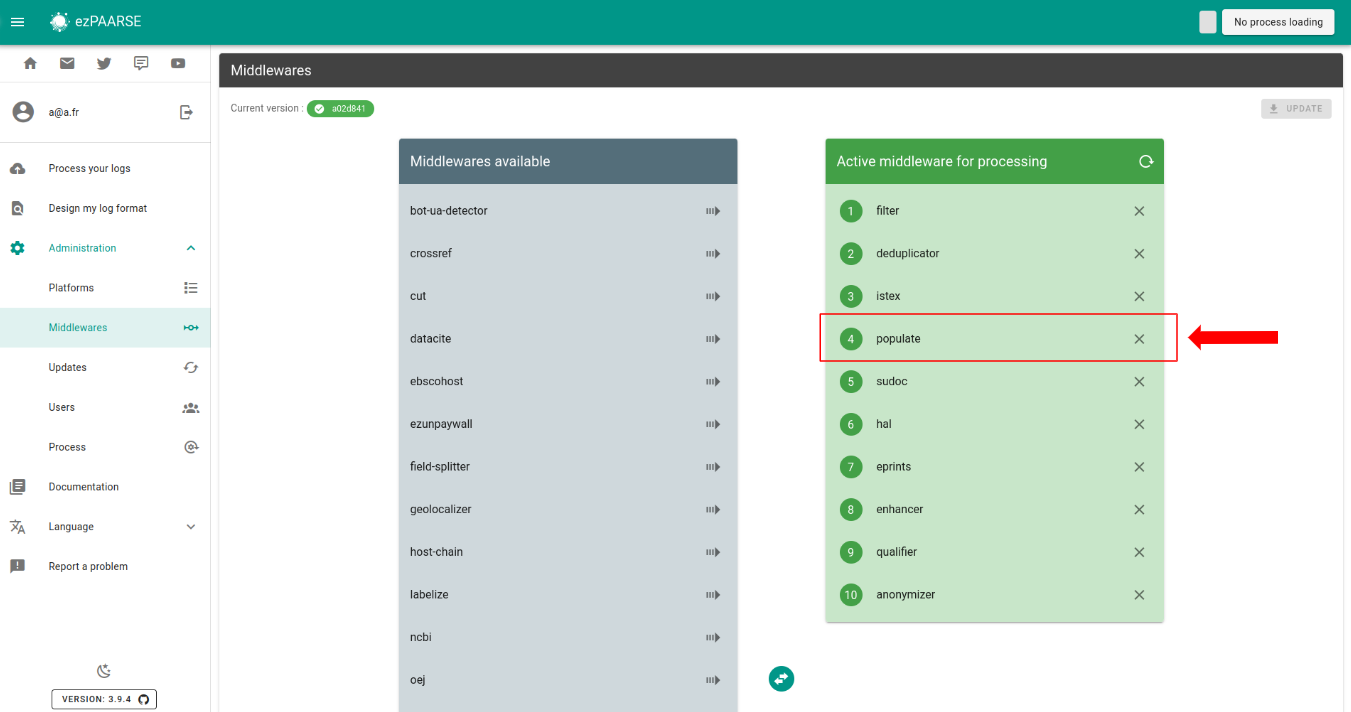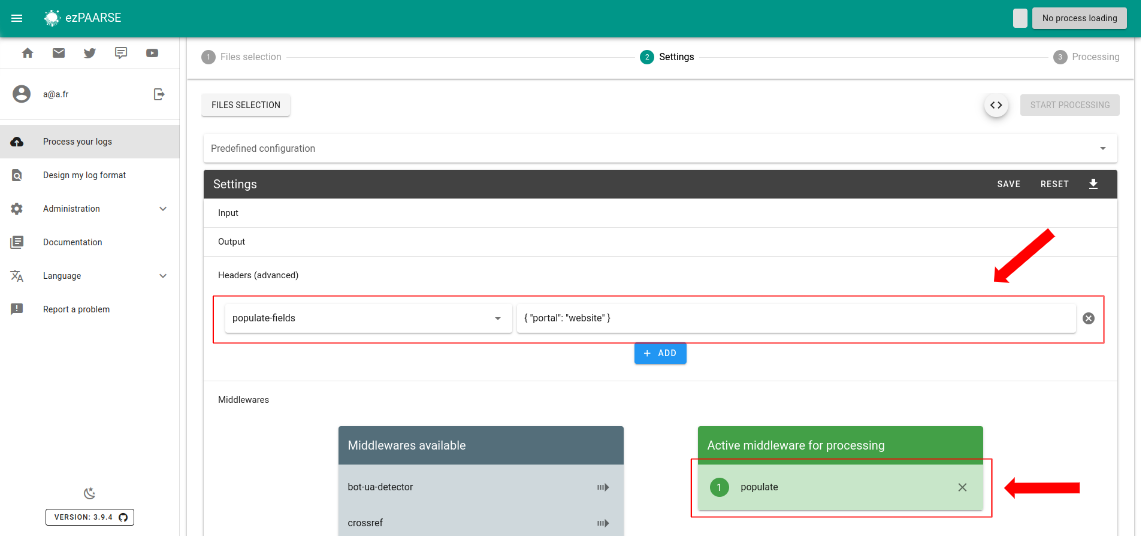# populate
Allows for populating fields with arbitrary data. To use it, set the header Populate-Fields with a JSON representation of the fields that should be populated. Any JSON compliant value will be affected to the EC with the corresponding key.
# Prerequisites
You must use populate after filter, parser, deduplicator middleware.
# Headers
- populate-fields : JSON that insert key as value and value as column in EC
# How to use
# Example
Insert website into the field portal.
Populate-Fields: { "portal": "website" }
# ezPAARSE admin interface
You can add or remove populate by default to all your enrichments, To do this, go to the middleware section of administration.

# ezPAARSE process interface
You can use populate for an enrichment process.

# ezp
You can use populate for an enrichment process with ezp (opens new window) like this:
# enrich with one file
ezp process <path of your file> \
--host <host of your ezPAARSE instance> \
--settings <settings-id> \
--header "ezPAARSE-Middlewares: populate" \
--header "Populate-Fields: { \"portal\": \"website\" }" \
--out ./result.csv
# enrich with multiples files
ezp bulk <path of your directory> \
--host <host of your ezPAARSE instance> \
--settings <settings-id> \
--header "ezPAARSE-Middlewares: populate" \
--header "Populate-Fields: { \"portal\": \"website\" }"
# curl
You can use populate for an enrichment process with curl like this:
curl -X POST -v http://localhost:59599 \
-H "ezPAARSE-Middlewares: populate" \
-H "Populate-Fields: { \"portal\": \"website\" }" \
-H "Log-Format-Ezproxy: <line format>" \
-F "file=@<log file path>"